"With 5,000 meals a day, you really make a difference"
9 min
interview
Plant forward dishes at EPFL University in Lausanne
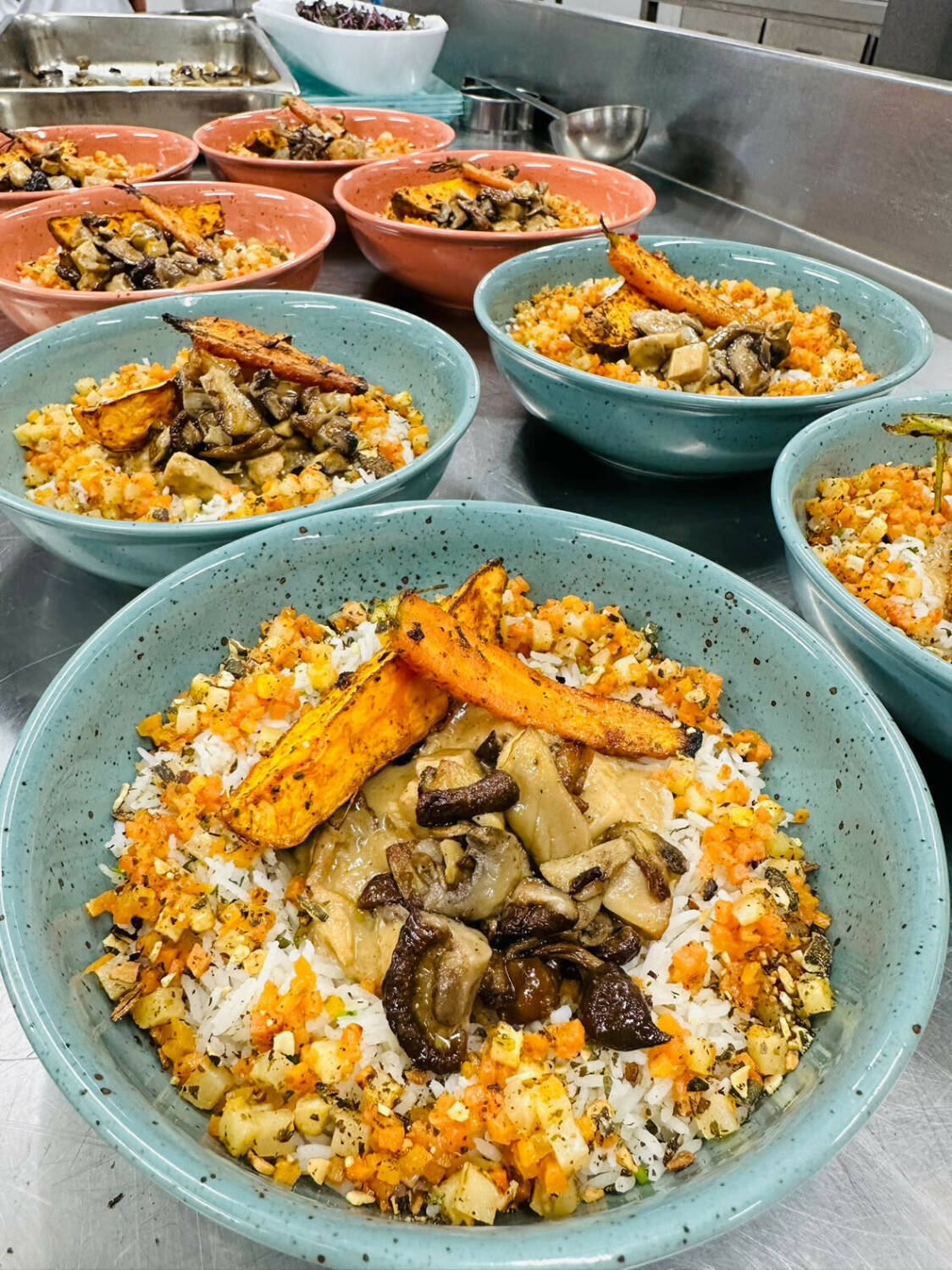
The Swiss are not known for being particularly adventurous in the kitchen. Eating out in Switzerland will not likely be a plant-based food experience. Approximately 80% of Swiss dishes in restaurants and catering establishments still contain meat, with a cooking style that is mainly French and German, inspired by its neighboring countries. For a long time, this had been the case at EPFL University in Lausanne, one of the most prestigious universities in the country. "French fries and meat, that's what students want to eat," stated the previous caterer.
Fascal Hukker Loraine Elemans
Outspoken and hyperactive, but with typical Swiss control is the best way to describe French chef Bruno Rossignol. In addition to his full-time job as Head of Food & Commerce at EPFL University in Lausanne, Rossignol is also the chef for the Swiss national ski cross and snowboard team. A man who reportedly sleeps only 2.5 hours a night, Rossignol aims to revolutionize the catering world and has no time to waste.
How does a chef who worked in presidential palaces and 5-star hotels worldwide end up in university catering?
"Since I was fourteen I worked in the kitchen; school didn't interest me. Above all, I wanted to gain as much experience as possible in as many different kitchens as possible. That led me from brasseries to Michelin-starred restaurants and from the Hotel School in Lausanne to the Swiss Olympic triathlon team. From hospitals to caterers and from private dining in the Middle East to banqueting in the Elysée Palace in Paris, I found out pretty quickly that systemic gastronomy was my thing. Not just a table of four, but collective catering, food at scale. To make an impact on large groups of guests, that's what I find interesting. So when this job came along, with the challenge of completely shaking up the menu and supply chain for 18,800 people, it was an easy decision."
2.3 kg
Since 2020, CO2 emissions per plate reduced by
51% more vegetarian consumption, goal is 80% by 2026
Since 2022,
Since 2020, fallow land transformed into 7 hectares of own farmland
of the menus are veg, with one full veg day per week
50%
13,300 students,
125 nationalities and 6,500 employees
As much organic as possible, 90% local and seasonal
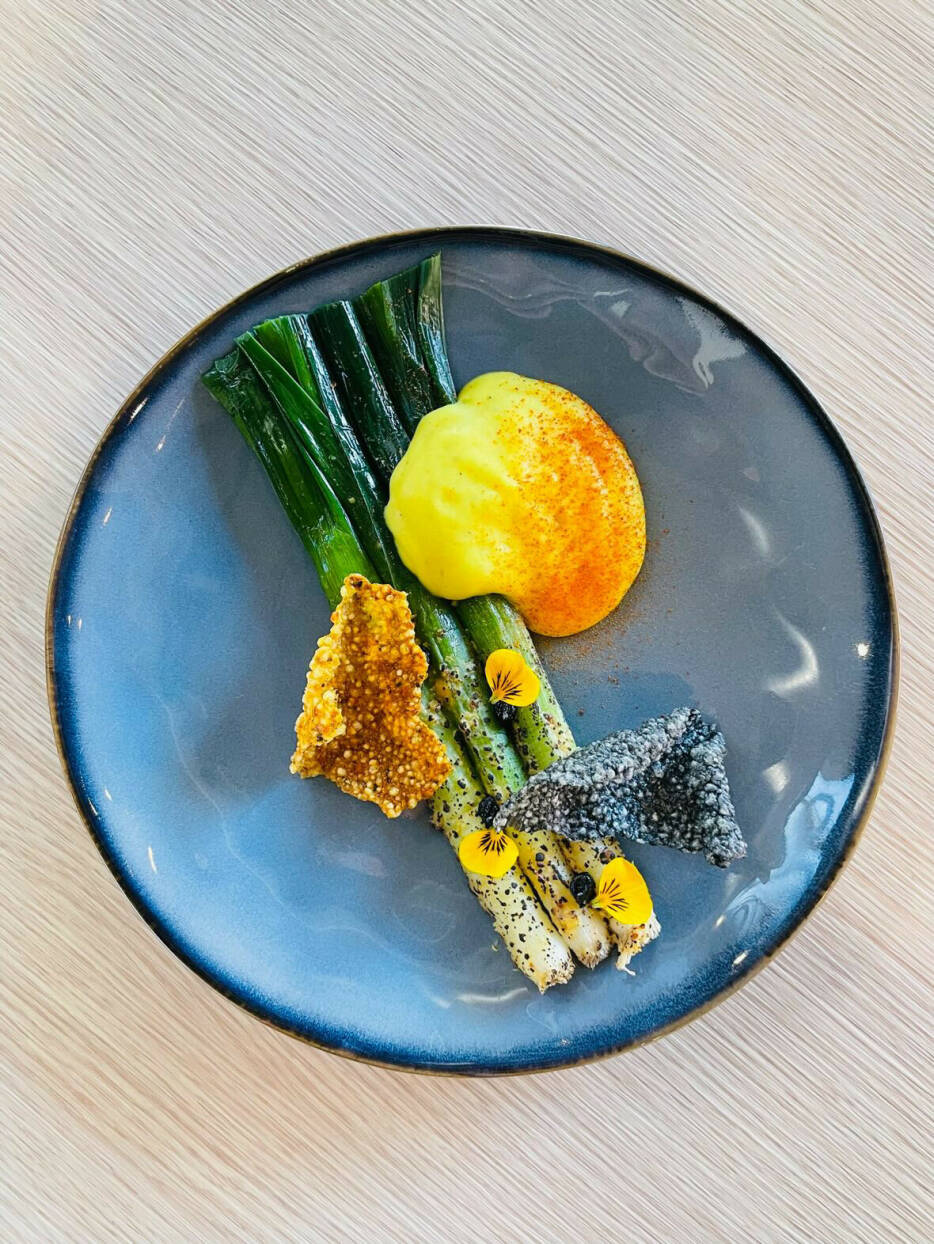
Students typically live on a relatively small budget. When it comes to organic and local food, that can increase cost. How do you deal with this?
"I deliberately did not let the increase in procurement costs lead to higher prices for the meals. The average hot meal costs between 5.90 and 8.10 Swiss francs, and the average spent per lunch is 8 Swiss francs*. Meat is very expensive in Switzerland, and consuming more plant-based food is therefore in theory not more expensive. It is mainly the self-imposed requirement to source organically and locally, in addition to inflation, that has driven up the procurement costs. But I had foreseen this, and that is why I adjusted the contract structure with the caterers. The most important thing for me is that students are much more satisfied with the offerings."
*1 Swiss franc = 1.10 dollar, reference date May 25, 2023
Big steps have been made in the past 2.5 years, what's next?
"We have already achieved a lot through the 2030 plan, but we can and must do a lot more before we can serve that Paris climate approved plate to everyone. We buy 90% locally, and you won’t find strawberries on my menu in wintertime. We no longer use single-use plastics either, as our purple tupperware is now fully accepted and implemented. The next goal is to move from 56% vegetarian consumption to 80% by 2026, and reduce CO2 emissions even further to 2.5 kg per kilogram of food."
"If I had an infinite budget, I would centralize the campus restaurants. To create a few large production kitchens would allow me to organize central logistics for optimal inventory management, to achieve fewer emissions and even more economies of scale. With the university's growth ambitions in mind, there's a good chance we'll eventually realize this, but it will certainly take several years and a lot of discussion with management. So for now, we are just starting more projects to change the system itself. You can get so much done if you are willing to challenge the status quo. As a result, we now have 50 vending machines with only local products, including a local version of Coca Cola."
How are your users reacting to the changes in their daily lunch?
"The student audience is very diverse at the EPFL. We have 125 different nationalities on campus with wide age ranges. When I started in 2019, the first thing I did was ask students what they liked to eat. The answer was clear, "we don't want to eat like the older generations have done for the past 30 years, we want to veggie-nize." They expressed a desire to know the origin of the ingredients on their plates, and have a knack for sustainably produced ingredients. I spent a considerable amount of time doing research on what they wanted and what was missing in the nutritional values of the food."
"Our other guest group is the university staff. Many professors are from a totally different generation, with more ingrained habits. That became painstakingly clear after we started introducing more vegetarian dishes. The moaning started when I introduced the once-a-week vegetarian day. The 60-plus group became especially angry, stating they didn't want to be forced to eat vegetarian. But we stood by our plan. Ideally I would like everyone to be happy, but with change come dropouts. There is no other way."
And the chefs on campus, how did you get them hooked on plant-based cuisine?
"Certainly, reducing the meat offerings and increasing the range of vegetarian options was quite a challenge. Most of the cooks with a few years of work experience have a classical cooking education, where cooking vegetarian dishes was barely taught. So I invest a lot in educating all the chefs. And I do that in collaboration with HILTL, Europe's oldest vegetarian restaurant. HILTL dates back to 1898 and was founded in Switzerland; they have a 110-year head start in this type of cuisine."
How did you change the foodmenu and the food chain subsequently?
“In terms of product offerings and suppliers, things were tough at the start. There was no insight or transparency whatsoever on the nutritional values of dishes, the origin of ingredients or the methods used in the kitchen. Nor was there any clarity about the amount of food waste. So I started working with local experts to make everything measurable. Our professors in the field of Artificial Intelligence also contributed. The data that emerged from all the analysis was the evidence I needed to make big changes and install a 2030 plan."
“We partnered with a number of innovative start-ups to quickly make progress. The start-up NutriMenu reviewed all the menu values for us. The dietician also pretty much lived in our kitchens during that time. Thanks to her app, we have a much better overview of what is offered in our restaurants. We now offer a balanced menu in terms of nutritional values, and have reduced the amount of salt tremendously. To our users, we communicate the nutritional score per dish with transparency. The bonus is that because of the new focus, our chefs are learning to cook healthier meals. Our menu now consists of 50% veggie options, and we have one day a week of completely vegetarian offerings.”
"Another start-up, called Beelong, created by a group of hotelschool students from the city of Lausanne, helped us to vet all the invoices from all caterers for the origin of products and ingredients. This was a huge project. But intensive collaboration and the combined knowledge of our university and this start-up accelerated the process by a landslide. The system is still in use today to assure that the ingredients we buy meet our requirements of organic and local. Caterers lose their contracts if they don't go along with this. NutriMenu then assigns an ECO-score to a dish for our consumers so they know if a dish has a good origin. Complete transparency!”
EPFL University's goal is to reduce its carbon footprint. But how do you get from words to deeds when it comes to the supply of food and beverage?
"My starting point was to move towards seasonal, local, fresh and organic food. In doing so, I needed healthier, plant-based and more balanced offerings. You would think this sounds very logical, but the system couldn't handle it. The contracts just couldn't accommodate the higher costs involved with the change in the menu and ingredients."
"There were 21 caterers who were locked into four-year contracts. They had to re-enter a tender process every four years, and were reluctant to invest for such a short period of time. I specifically wanted them to renew and innovate the dishes, but that didn't work. To begin, I reduced the number of caterers from 21 to three, so that they could achieve economies of scale and create a better basis for cooperation. Then I took over all the hardware; all the kitchen equipment, ovens, stoves, refrigerators. The university administration started looking a bit pale when I came up with that proposal. But this way, the caterers no longer had to worry about all these costs. By lowering their investments, I was able to offset the increase in raw material costs, and as a bonus we now have a high-quality partnership."
Food Inspiration interviewed Rossignol about the revolution he has attempted in "collective catering," as it’s called in Switzerland. The man who began scrubbing pans in a Michelin-starred restaurant in Paris, worked in renowned hotels in Europe and the presidential palace in Baku, amongst other places, has a long track record. Food Inspiration delves into what drives Rossignol to stick to catering, as it’s traditionally viewed as the less glamorous side of foodservice. "Catering is just incredibly important in climate action, because you can make a difference every single day."
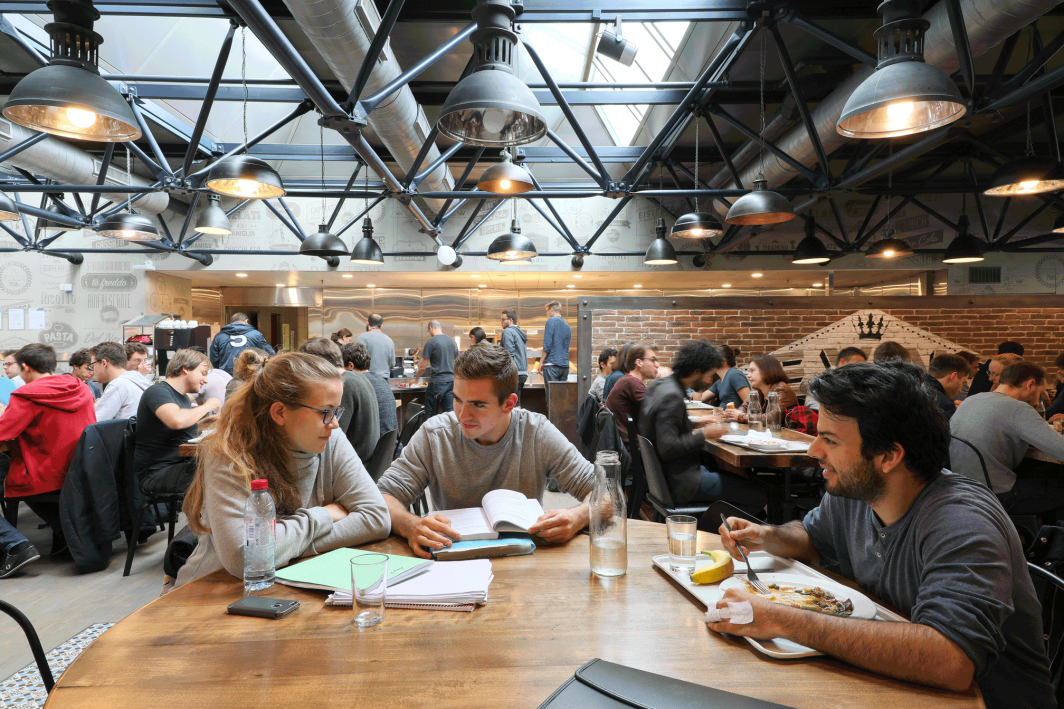
EPFL has its own Food & Nutrition Center. Do you benefit from collaborating with them?
"We do small projects with students. For example, I have a vending machine project running in which students have decided what is sold in the vending machines. There are also some interesting projects in the pipeline that I can't say too much about.”
According to Christian Schwab, the director of EPFL's Food and Nutrition Center, it is enormously important to increase the attention to food, especially in the university context. He points out that food has never been taken seriously in academia. Certainly not when it comes to disease prevention. The drug industry can count on almost limitless investments, while healthy food habits can have much more effect in prevention (diseases like obesity). Christian is convinced that this has to change in the future.
A collaboration with Computer Science faculty is underway as well, according to Rossignol. "By using artificial intelligence and analysis of peer-pressure purchase data, researchers are trying to figure out how to nudge guests toward more sustainable choices. A big data project was created in collaboration with Professor Robert West; the research is still in its early days, but initial results are promising."

Chef Remy Tranchida works in the new veg-only restaurant NATIVE on the EPFL campus
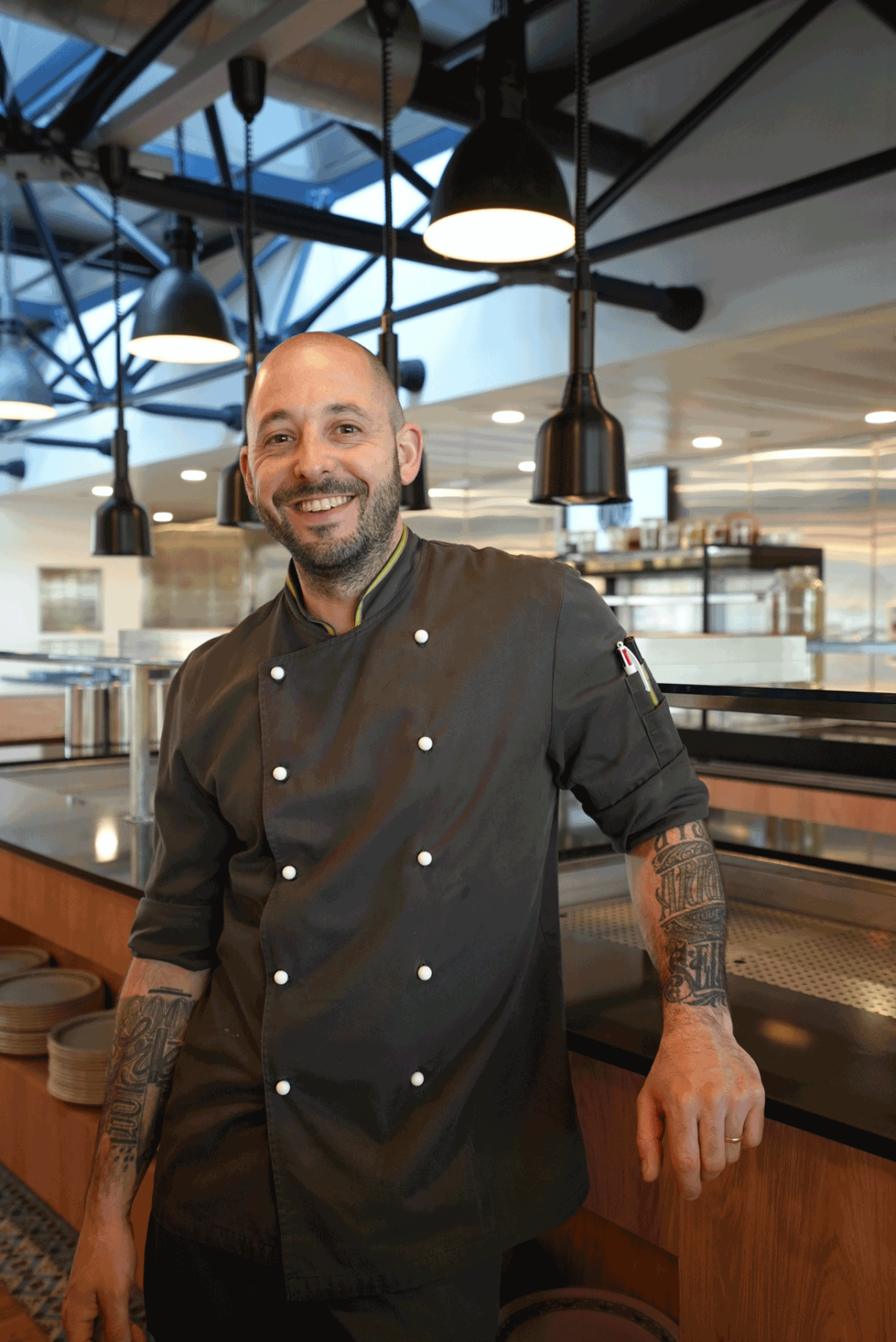

When Rossignol started at EPFL (the École Polytechnique Fédérale Lausanne) in 2019, the assignment was “to translate the Paris climate agreement to the plate.” This was not really firm, because "the Swiss politician who signed that agreement on food really had no idea; the agreement had to be completely dissected to find out what it really meant," Rossignol states. The 17,700 daily visitors, especially the 13,300 students, did have an idea. They were interested in food that was completely different.
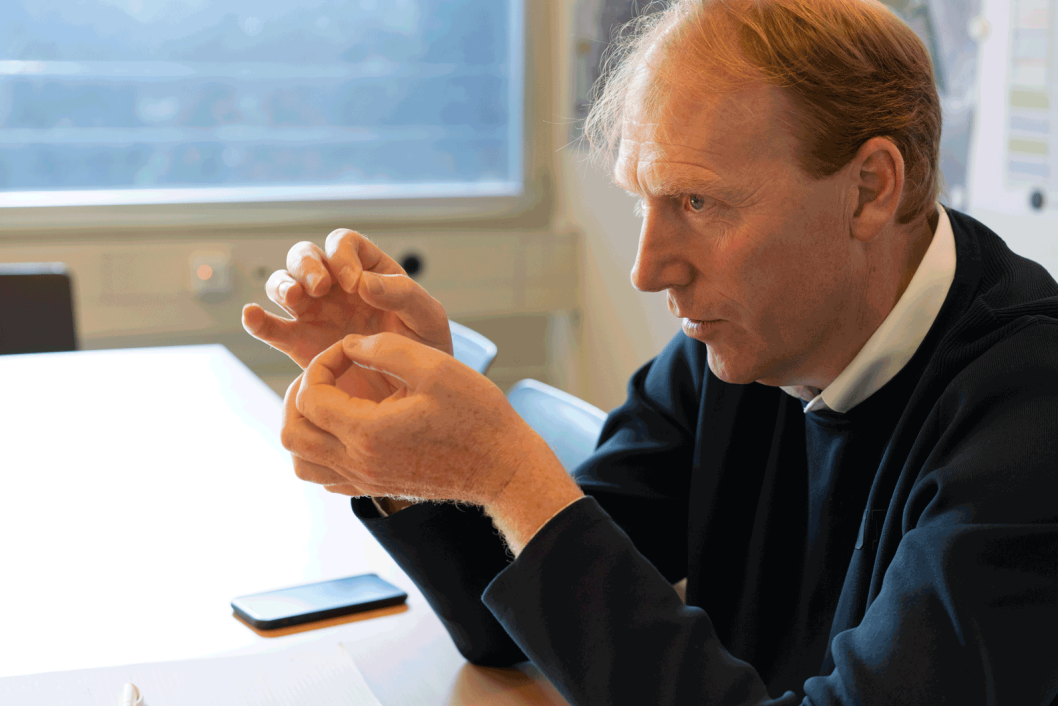
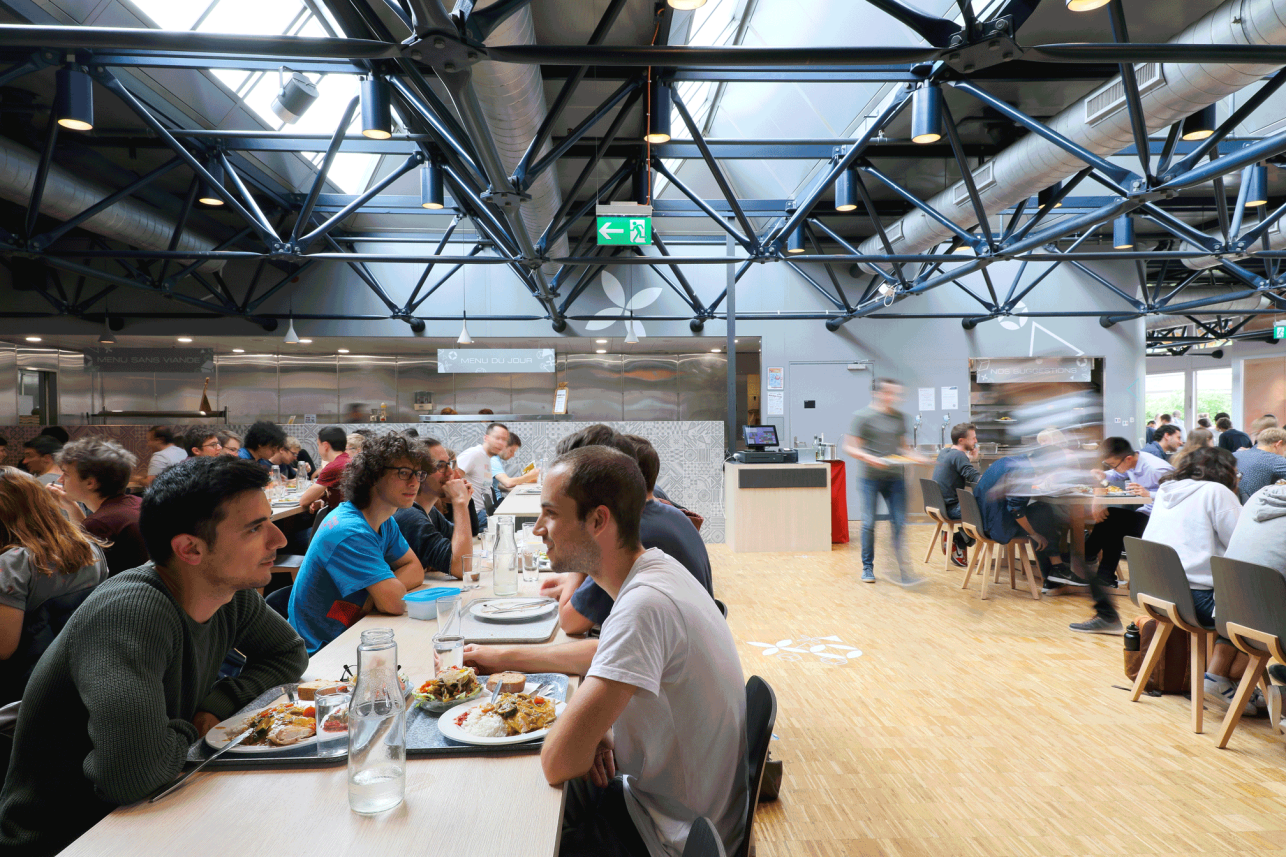
Bruno Rossignol, Head of Food & Commerce at EPFL University in Lausanne

2.3 kg
Since 2020, CO2 emissions per plate reduced by
51% more vegetarian consumption, goal is 80% by 2026
Since 2022,
Since 2020, fallow land transformed into 7 hectares of own farmland
of the menus are veg, with one full veg day per week
50%
13,300 students,
125 nationalities and 6,500 employees
As much organic as possible, 90% local and seasonal
Big steps have been made in the past 2.5 years, what's next?
"We have already achieved a lot through the 2030 plan, but we can and must do a lot more before we can serve that Paris climate approved plate to everyone. We buy 90% locally, and you won’t find strawberries on my menu in wintertime. We no longer use single-use plastics either, as our purple tupperware is now fully accepted and implemented. The next goal is to move from 56% vegetarian consumption to 80% by 2026, and reduce CO2 emissions even further to 2.5 kg per kilogram of food."
"If I had an infinite budget, I would centralize the campus restaurants. To create a few large production kitchens would allow me to organize central logistics for optimal inventory management, to achieve fewer emissions and even more economies of scale. With the university's growth ambitions in mind, there's a good chance we'll eventually realize this, but it will certainly take several years and a lot of discussion with management. So for now, we are just starting more projects to change the system itself. You can get so much done if you are willing to challenge the status quo. As a result, we now have 50 vending machines with only local products, including a local version of Coca Cola."
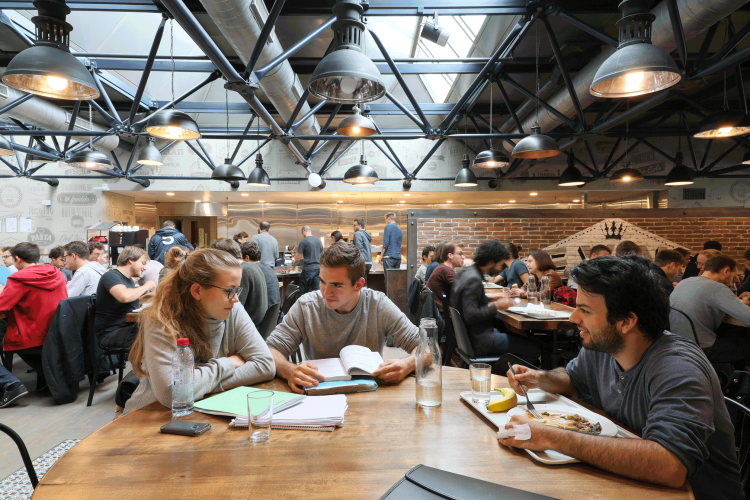
EPFL has its own Food & Nutrition Center. Do you benefit from collaborating with them?
"We do small projects with students. For example, I have a vending machine project running in which students have decided what is sold in the vending machines. There are also some interesting projects in the pipeline that I can't say too much about.”
According to Christian Schwab, the director of EPFL's Food and Nutrition Center, it is enormously important to increase the attention to food, especially in the university context. He points out that food has never been taken seriously in academia. Certainly not when it comes to disease prevention. The drug industry can count on almost limitless investments, while healthy food habits can have much more effect in prevention (diseases like obesity). Christian is convinced that this has to change in the future.
A collaboration with Computer Science faculty is underway as well, according to Rossignol. "By using artificial intelligence and analysis of peer-pressure purchase data, researchers are trying to figure out how to nudge guests toward more sustainable choices. A big data project was created in collaboration with Professor Robert West; the research is still in its early days, but initial results are promising."
Students typically live on a relatively small budget. When it comes to organic and local food, that can increase cost. How do you deal with this?
"I deliberately did not let the increase in procurement costs lead to higher prices for the meals. The average hot meal costs between 5.90 and 8.10 Swiss francs, and the average spent per lunch is 8 Swiss francs*. Meat is very expensive in Switzerland, and consuming more plant-based food is therefore in theory not more expensive. It is mainly the self-imposed requirement to source organically and locally, in addition to inflation, that has driven up the procurement costs. But I had foreseen this, and that is why I adjusted the contract structure with the caterers. The most important thing for me is that students are much more satisfied with the offerings."
*1 Swiss franc = 1.10 dollar, reference date May 25, 2023
How are your users reacting to the changes in their daily lunch?
"The student audience is very diverse at the EPFL. We have 125 different nationalities on campus with wide age ranges. When I started in 2019, the first thing I did was ask students what they liked to eat. The answer was clear, "we don't want to eat like the older generations have done for the past 30 years, we want to veggie-nize." They expressed a desire to know the origin of the ingredients on their plates, and have a knack for sustainably produced ingredients. I spent a considerable amount of time doing research on what they wanted and what was missing in the nutritional values of the food."
"Our other guest group is the university staff. Many professors are from a totally different generation, with more ingrained habits. That became painstakingly clear after we started introducing more vegetarian dishes. The moaning started when I introduced the once-a-week vegetarian day. The 60-plus group became especially angry, stating they didn't want to be forced to eat vegetarian. But we stood by our plan. Ideally I would like everyone to be happy, but with change come dropouts. There is no other way."
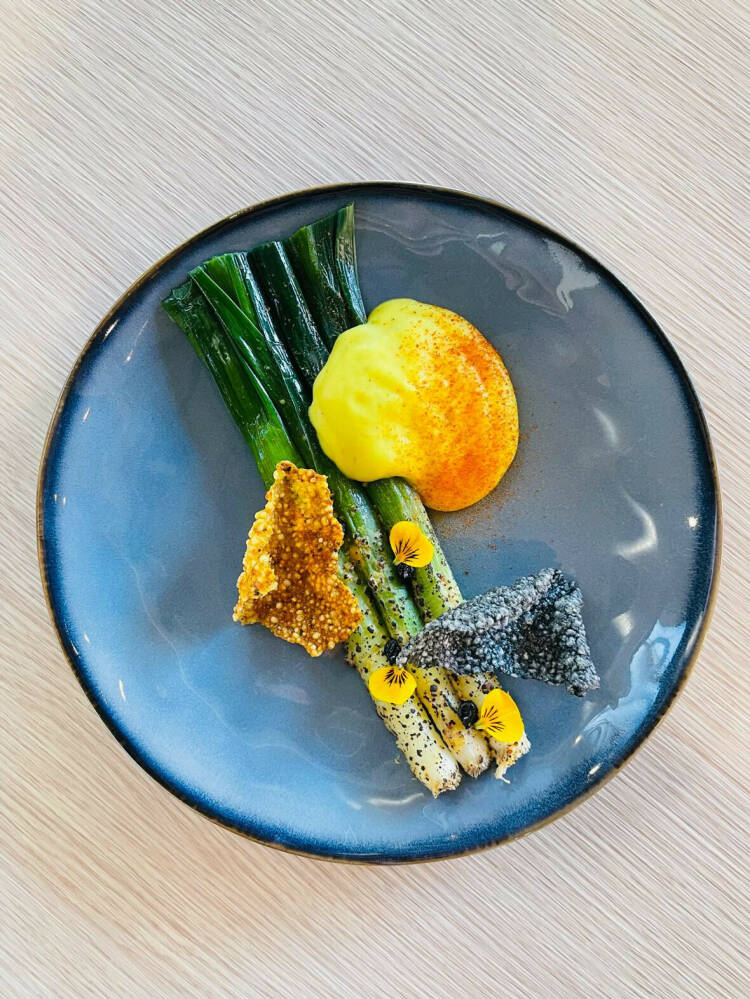
And the chefs on campus, how did you get them hooked on plant-based cuisine?
"Certainly, reducing the meat offerings and increasing the range of vegetarian options was quite a challenge. Most of the cooks with a few years of work experience have a classical cooking education, where cooking vegetarian dishes was barely taught. So I invest a lot in educating all the chefs. And I do that in collaboration with HILTL, Europe's oldest vegetarian restaurant. HILTL dates back to 1898 and was founded in Switzerland; they have a 110-year head start in this type of cuisine."
How did you change the foodmenu and the food chain subsequently?
“In terms of product offerings and suppliers, things were tough at the start. There was no insight or transparency whatsoever on the nutritional values of dishes, the origin of ingredients or the methods used in the kitchen. Nor was there any clarity about the amount of food waste. So I started working with local experts to make everything measurable. Our professors in the field of Artificial Intelligence also contributed. The data that emerged from all the analysis was the evidence I needed to make big changes and install a 2030 plan."
“We partnered with a number of innovative start-ups to quickly make progress. The start-up NutriMenu reviewed all the menu values for us. The dietician also pretty much lived in our kitchens during that time. Thanks to her app, we have a much better overview of what is offered in our restaurants. We now offer a balanced menu in terms of nutritional values, and have reduced the amount of salt tremendously. To our users, we communicate the nutritional score per dish with transparency. The bonus is that because of the new focus, our chefs are learning to cook healthier meals. Our menu now consists of 50% veggie options, and we have one day a week of completely vegetarian offerings.”
"Another start-up, called Beelong, created by a group of hotelschool students from the city of Lausanne, helped us to vet all the invoices from all caterers for the origin of products and ingredients. This was a huge project. But intensive collaboration and the combined knowledge of our university and this start-up accelerated the process by a landslide. The system is still in use today to assure that the ingredients we buy meet our requirements of organic and local. Caterers lose their contracts if they don't go along with this. NutriMenu then assigns an ECO-score to a dish for our consumers so they know if a dish has a good origin. Complete transparency!”
Chef Remy Tranchida works in the new veg-only restaurant NATIVE on the EPFL campus
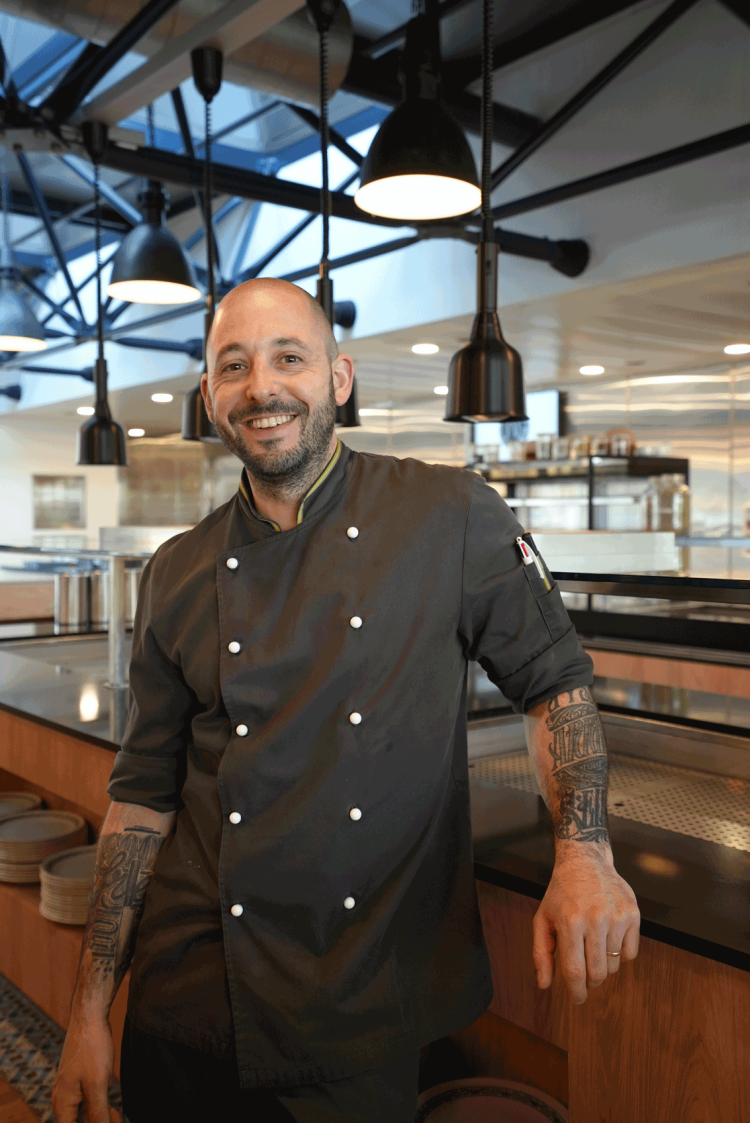

EPFL University's goal is to reduce its carbon footprint. But how do you get from words to deeds when it comes to the supply of food and beverage?
"My starting point was to move towards seasonal, local, fresh and organic food. In doing so, I needed healthier, plant-based and more balanced offerings. You would think this sounds very logical, but the system couldn't handle it. The contracts just couldn't accommodate the higher costs involved with the change in the menu and ingredients."
"There were 21 caterers who were locked into four-year contracts. They had to re-enter a tender process every four years, and were reluctant to invest for such a short period of time. I specifically wanted them to renew and innovate the dishes, but that didn't work. To begin, I reduced the number of caterers from 21 to three, so that they could achieve economies of scale and create a better basis for cooperation. Then I took over all the hardware; all the kitchen equipment, ovens, stoves, refrigerators. The university administration started looking a bit pale when I came up with that proposal. But this way, the caterers no longer had to worry about all these costs. By lowering their investments, I was able to offset the increase in raw material costs, and as a bonus we now have a high-quality partnership."
How does a chef who worked in presidential palaces and 5-star hotels worldwide end up in university catering?
"Since I was fourteen I worked in the kitchen; school didn't interest me. Above all, I wanted to gain as much experience as possible in as many different kitchens as possible. That led me from brasseries to Michelin-starred restaurants and from the Hotel School in Lausanne to the Swiss Olympic triathlon team. From hospitals to caterers and from private dining in the Middle East to banqueting in the Elysée Palace in Paris, I found out pretty quickly that systemic gastronomy was my thing. Not just a table of four, but collective catering, food at scale. To make an impact on large groups of guests, that's what I find interesting. So when this job came along, with the challenge of completely shaking up the menu and supply chain for 18,800 people, it was an easy decision."

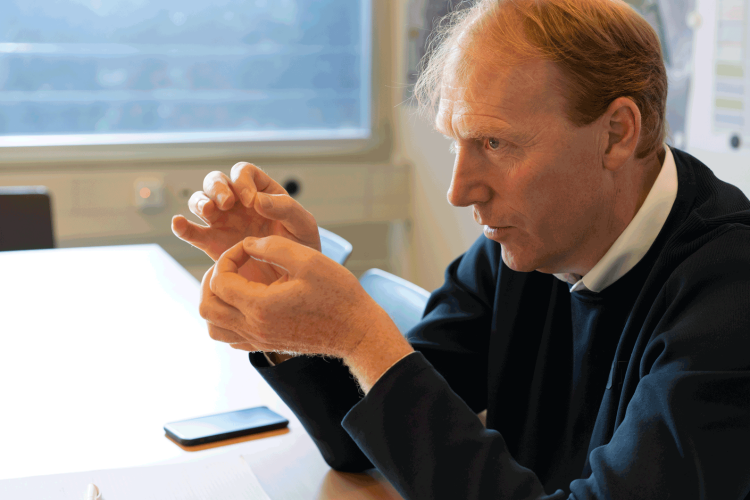
Food Inspiration interviewed Rossignol about the revolution he has attempted in "collective catering," as it’s called in Switzerland. The man who began scrubbing pans in a Michelin-starred restaurant in Paris, worked in renowned hotels in Europe and the presidential palace in Baku, amongst other places, has a long track record. Food Inspiration delves into what drives Rossignol to stick to catering, as it’s traditionally viewed as the less glamorous side of foodservice. "Catering is just incredibly important in climate action, because you can make a difference every single day."

When Rossignol started at EPFL (the École Polytechnique Fédérale Lausanne) in 2019, the assignment was “to translate the Paris climate agreement to the plate.” This was not really firm, because "the Swiss politician who signed that agreement on food really had no idea; the agreement had to be completely dissected to find out what it really meant," Rossignol states. The 17,700 daily visitors, especially the 13,300 students, did have an idea. They were interested in food that was completely different.
The Swiss are not known for being particularly adventurous in the kitchen. Eating out in Switzerland will not likely be a plant-based food experience. Approximately 80% of Swiss dishes in restaurants and catering establishments still contain meat, with a cooking style that is mainly French and German, inspired by its neighboring countries. For a long time, this had been the case at EPFL University in Lausanne, one of the most prestigious universities in the country. "French fries and meat, that's what students want to eat," stated the previous caterer.
"With 5,000 meals a day, you really make a difference"
Fascal Hukker Loraine Elemans
Outspoken and hyperactive, but with typical Swiss control is the best way to describe French chef Bruno Rossignol. In addition to his full-time job as Head of Food & Commerce at EPFL University in Lausanne, Rossignol is also the chef for the Swiss national ski cross and snowboard team. A man who reportedly sleeps only 2.5 hours a night, Rossignol aims to revolutionize the catering world and has no time to waste.
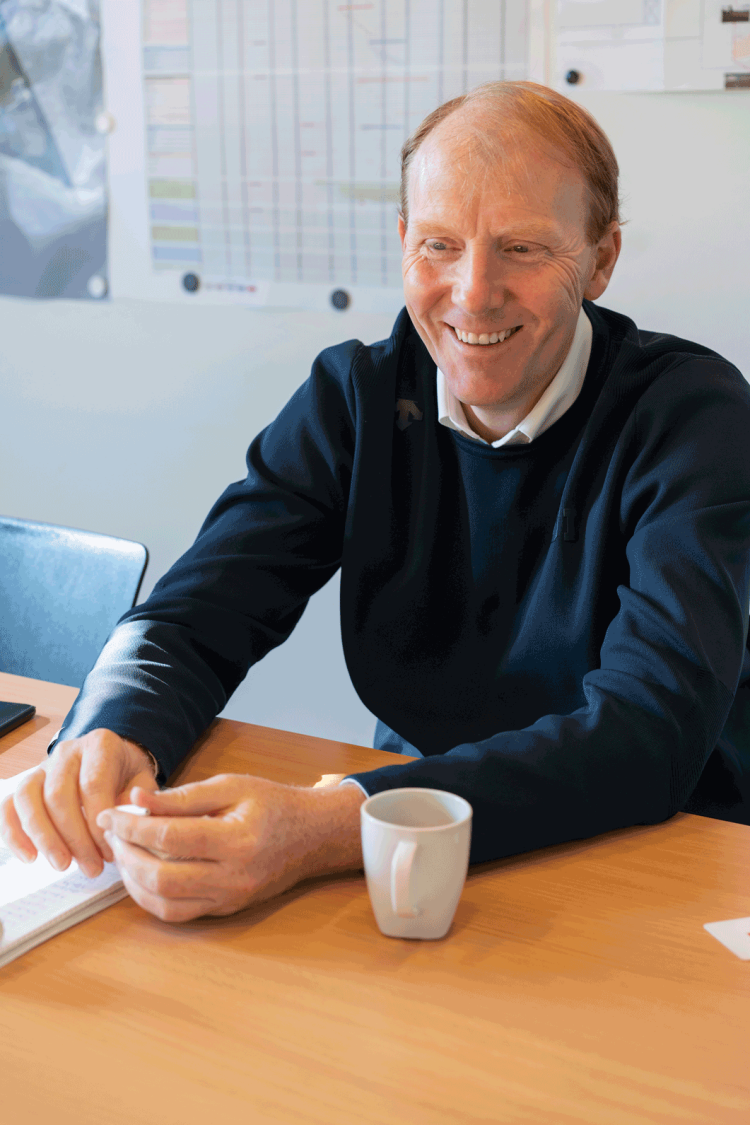
9 min









